第39章 CHAPTER VI NOTABLE USERS OF THE TELEPHONE(1)
What we might call the telephonization of city life, for lack of a simpler word, has remarkably altered our manner of living from what it was in the days of Abraham Lincoln. It has enabled us to be more social and cooperative.
It has literally abolished the isolation of separate families, and has made us members of one great family. It has become so truly an organ of the social body that by telephone we now enter into contracts, give evidence, try lawsuits, make speeches, propose marriage, confer degrees, appeal to voters, and do almost everything else that is a matter of speech.
In stores and hotels this wire traffic has grown to an almost bewildering extent, as these are the places where many interests meet. The hundred largest hotels in New York City have twenty-one thousand telephones--nearly as many as the continent of Africa and more than the kingdom of Spain. In an average year they send six million messages. The Waldorf-Astoria alone tops all residential buildings with eleven hundred and twenty telephones and five hundred thousand calls a year; while merely the Christmas Eve orders that flash into Marshall Field's store, or John Wanamaker's, have risen as high as the three thousand mark.
Whether the telephone does most to concentrate population, or to scatter it, is a question that has not yet been examined. It is certainly true that it has made the skyscraper possible, and thus helped to create an absolutely new type of city, such as was never imagined even in the fairy tales of ancient nations. The skyscraper is ten years younger than the telephone. It is now generally seen to be the ideal building for business offices. It is one of the few types of architecture that may fairly be called American.
And its efficiency is largely, if not mainly, due to the fact that its inhabitants may run errands by telephone as well as by elevator.
There seems to be no sort of activity which is not being made more convenient by the telephone.
It is used to call the duck-shooters in Western Canada when a flock of birds has arrived; and to direct the movements of the Dragon in Wagner's grand opera "Siegfried."At the last Yale-Harvard football game, it conveyed almost instantaneous news to fifty thousand people in various parts of New England.
At the Vanderbilt Cup Race its wires girdled the track and reported every gain or mishap of the racing autos. And at such expensive pageants as that of the Quebec Tercentenary in 1908, where four thousand actors came and went upon a ten-acre stage, every order was given by telephone.
Public officials, even in the United States, have been slow to change from the old-fashioned and more dignified use of written documents and uniformed messengers; but in the last ten years there has been a sweeping revolution in this respect.
Government by telephone! This is a new idea that has already arrived in the more efficient departments of the Federal service. And as for the present Congress, that body has gone so far as to plan for a special system of its own, in both Houses, so that all official announcements may be heard by wire.
Garfield was the first among American Presidents to possess a telephone. An exhibition instrument was placed in his house, without cost, in 1878, while he was still a member of Congress.
Neither Cleveland nor Harrison, for temperamental reasons, used the magic wire very often.
Under their regime, there was one lonely idle telephone in the White House, used by the servants several times a week. But with McKinley came a new order of things. To him a telephone was more than a necessity. It was a pastime, an exhilarating sport. He was the one President who really revelled in the comforts of telephony. In 1895 he sat in his Canton home and heard the cheers of the Chicago Convention.
Later he sat there and ran the first presidential telephone campaign; talked to his managers in thirty-eight States. Thus he came to regard the telephone with a higher degree of appreciation than any of his predecessors had done, and eulogized it on many public occasions. "It is bringing us all closer together," was his favorite phrase.
To Roosevelt the telephone was mainly for emergencies. He used it to the full during the Chicago Convention of 1907 and the Peace Conference at Portsmouth. But with Taft the telephone became again the common avenue of conversation. He has introduced at least one new telephonic custom a long-distance talk with his family every evening, when he is away from home. Instead of the solitary telephone of Cleveland-Harrison days, the White House has now a branch exchange of its own--Main 6--with a sheaf of wires that branch out into every room as well as to the nearest central.
Next to public officials, bankers were perhaps the last to accept the facilities of the telephone.
They were slow to abandon the fallacy that no business can be done without a written record.